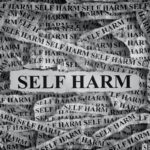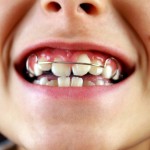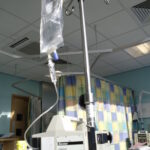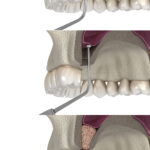
Amelia Talbot looks at a recent qualitative study of patient and carer perspectives, which explores the reasons why some patients do not receive a psychosocial assessment in emergency departments following self-harm.
[read the full story...]
Amelia Talbot looks at a recent qualitative study of patient and carer perspectives, which explores the reasons why some patients do not receive a psychosocial assessment in emergency departments following self-harm.
[read the full story...]
This Cochrane review of the effects of orthodontic interventions for preventing or correcting crowded teeth in children included 24 RCTs. A wide range of interventions were assessed typically is small single studies so the available evidence is of very low certainty.
[read the full story...]
Michael Ostacher critically appraises and summarises a recent Cochrane systematic review, which presents the latest best evidence on the efficacy of lamotrigine in the maintenance treatment of bipolar disorder.
[read the full story...]
This review of whether chemotherapy, in addition to radiotherapy and/or surgery for oral cavity and oropharyngeal cancer, results in improved overall survival included 100 studies. the findings indicated some benefit only when used in a few specific circumstances.
[read the full story...]
Xanthe Hunt and Jason Bantjes consider the perspectives of autistic young people affected by social exclusion, and present early findings from their new active ingredients review which looks at the role of social inclusion interventions in improving adolescent mental health.
[read the full story...]
This Cochrane review update of the diagnostic test accuracy of conventional oral examination, vital rinsing, light-based detection, mouth self-examination, remote screening, and biomarkers, used singly or in combination, for the early detection of OPMD or OSCC in apparently healthy adults included 18 studies.
[read the full story...]
Ian Hamilton summarises a recent study exploring whether psychotic-like experiences are related to the discontinuation of cannabis consumption in young adults.
[read the full story...]
In her debut blog, Jeanne Wolstencroft summarises a systematic review finding that parental involvement in therapy doesn’t help treat children with anxiety.
[read the full story...]
Mark Steven Howe takes a detailed look at this Bayesian network meta-analysis (NMA) assessing the relative performance of diffferent biomaterials used for maxillary sinus augmentation. 34 RCTs with 28 different treatment options providing a large number of potential pairwise comparisons although only a small number used direct data. The findings suggest little difference beween the various biomaterials but the available studies are small with only 5 being at low risk of bias.
[read the full story...]
In her debut blog, Natalie Kashirsky explores a qualitative study finding valuable mechanisms of peer support in early intervention in psychosis services.
[read the full story...]